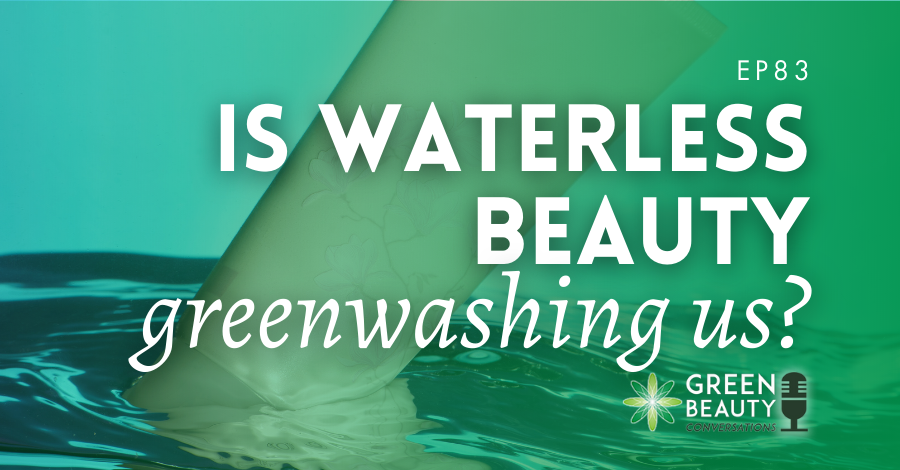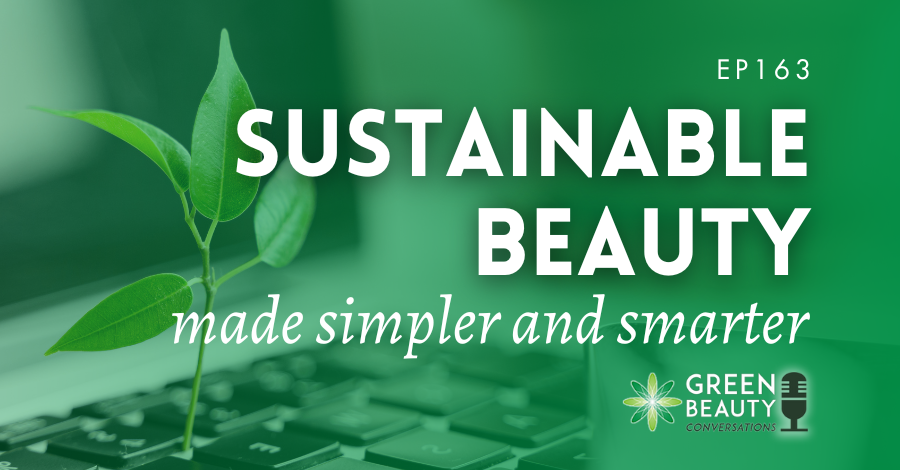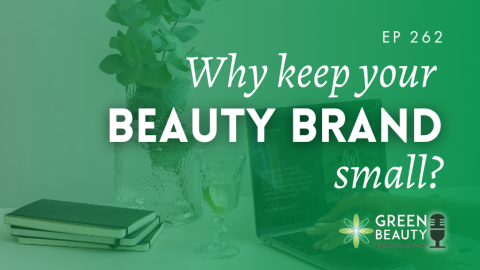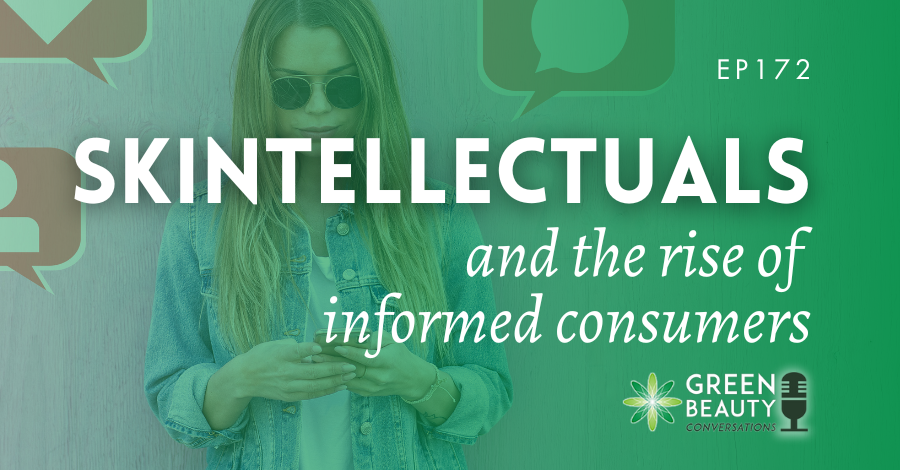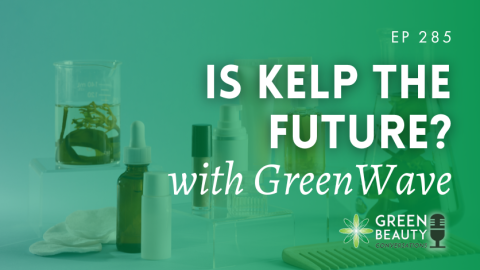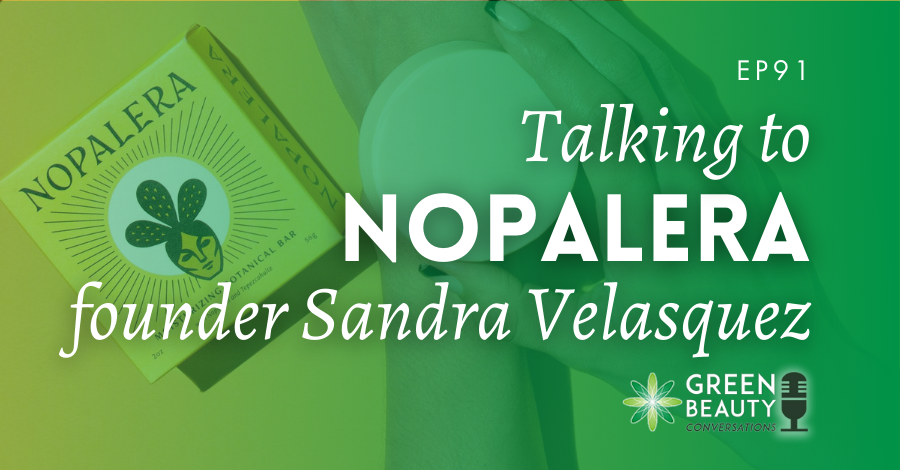Waterless skincare is on everyone’s lips these days in the beauty industry. Waterless products are being touted as a key pillar of beauty’s drive for sustainability. With 2021 having seen devastating evidence of the climate change crisis and world leaders struggle to find consensus on emissions’ and global warming targets, anything the beauty industry can do to play its part in sustaining the planet’s natural resources is welcome.
But, as with most beauty industry buzzwords, ‘waterless’, when used to mean more sustainable cosmetics, has the potential to be hype, hot air and just another case of greenwashing.
In this episode, Formula Botanica CEO Lorraine Dallmeier, a biologist and chartered environmentalist, is joined by colleague and deputy education manager Ana Green to unpack the waterless skincare trend. Listen in for a reality check on the meaning of waterless in beauty. Does it have substance or it is just another industry marketing term that doesn’t stand scrutiny?
How waterless beauty is greenwashing beauty consumers. Listen to the @FormulaBotanica podcast for the truth behind the beauty trend. #waterlessbeauty #sustainablebeauty #beautytrends Share on X
In this episode on waterless skincare, you will hear:
- How the term waterless has gone from meaning simply anhydrous products and then more concentrated solid products to being equated firmly and automatically with more sustainable lifestyle choices.
- About the 4 key reasons waterless beauty products have captured consumers’ hearts and minds.
- How a beauty product may have a totally waterless formulation but will inevitably leave a water footprint throughout its life cycle from the growing and harvesting of its raw ingredients to its manufacturing, packaging and shipping.
- Why waterless beauty can be considered window dressing and that the sustainability issues facing the beauty industry are far more nuanced. The beauty industry’s economic model of growth through the unfettered consumption needs tackling if the sector is serious about its drive for sustainability.
Key take-outs include:
- Waterless skincare in the true sense of anhydrous products has plenty to offer beauty consumers. Products like oils and balms can be used sparingly with effect, multitask and bring the benefits of 100% pure botanical oils.
- Water plays an important role in skincare. An optimal beauty routine would involve hydrating the skin topically with water-based products. These play a role in imparting water-soluble, high-performance active ingredients that can target specific skin issues.
- The adjective ‘waterless’ when used to talk about a type of beauty product is not the problem. However, it can be erroneous and misleading to use waterless to imply that a product is a more sustainable option. Instead, the beauty industry should be talking about ‘water-responsible’ beauty and practices.
- The use of fewer natural resources in the first place in the production of beauty products is where sustainable practices really lie.
References
Links to reports mentioned in the podcast:
Assessing eco-innovations in green chemistry: LCA of a cosmetic product with a bio-based ingredient.
Green Beauty Opinion – Podcast 84: The beauty industry is avoiding the elephant in the room
Formula Botanica CEO Lorraine Dallmeier follows up on her episode with colleague Ana Green to ask if by using trending terms like ‘waterless’, the beauty industry is shying away from the very real challenges of sustainability. Lorraine argues that by heralding latest concepts like ‘waterless beauty’ as definitive blueprints for sustainability, the beauty industry is glossing over issues and avoiding the elephant in the room: its inherently unsustainable model of rampant economic growth built on finite resources. In this opinion short, Lorraine invites us all to not only talk the talk, but walk the walk in our drive for beauty industry sustainability.
Listen to Lorraine’s Green Beauty Opinion:
You might also like to listen to our other episodes on sustainability issues:
Top sustainability challenges and concerns for the beauty industry
Are indie brands falling behind on sustainabiity?
Can a beauty brand ever be carbon neutral?
Thank you for joining us for this episode of the Formula Botanica Green Beauty Conversations podcast. If you enjoyed listening, please share, subscribe and review this episode on Apple Podcasts, Spotify or Youtube so that more people can enjoy the show. Don’t forget to follow and connect with us on Facebook and Instagram.
FREE TRAINING
Learn how to become an
Organic Skincare Formulator
FREE TRAINING
How to become an
Organic Skincare Entrepreneur
FREE TRAINING
How to become an
Organic Skincare Entrepreneur
Leave us a comment
Lorraine Dallmeier is a Biologist, Chartered Environmentalist and the CEO of Formula Botanica, the award-winning online organic cosmetic science school. Read more about Lorraine and the Formula Botanica Team.

